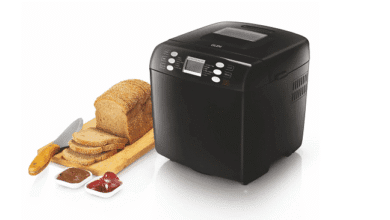Top Strategies on How to Find Businesses for Sale in 2025

Introduction
Looking to become your own boss? Then mastering how to find businesses for sale is your first major step. Whether you’re a budding entrepreneur or an investor, there are numerous strategies to locate the perfect opportunity.
The business-for-sale marketplace is more dynamic than ever. With online tools, professional networks, and targeted platforms, it’s now easier to uncover potential ventures — if you know where to look. In this guide, we’ll cover 7 proven methods to help you on your search and what to do once you find a match.
1. Use Online Business Marketplaces
The easiest and quickest way to learn about how to find businesses for sale is to visit online business-for-sale marketplaces.
BizBuySell, BizQuest, and LoopNet are examples of sites that can filter listings by industry, location, and price range. These online marketplaces have thousands of current listings, as well as important data from sellers detailing financial information, contact information, and general assessments of the seller’s experience.
You can segment your search by region or type of business. With a couple of clicks, you can look at different opportunities side-by-side and set alerts when new listings are posted that meet your specifications.
Be sure to set a clear budget, desired industry, and location preferences to narrow your results. This is one of the smartest strategies for someone who is serious about how to find businesses for sale fast.
Relevant Search: ECOS Laundry Detergent Review
2. Work with Business Brokers
Business brokers act as matchmakers in the buying and selling process. If you’re unsure how to find businesses for sale, hiring a broker might be your best move.
They often have exclusive access to listings not publicly advertised and can guide you through valuation, negotiation, and due diligence. Brokers can also help you understand which businesses are a good fit based on your background and investment level.
Make sure to vet the broker’s credentials, track record, and niche. Some brokers specialize in specific industries, making them an invaluable resource for finding niche opportunities.
A qualified broker doesn’t just find a listing — they help you close the deal successfully. If you’re serious about how to find businesses for sale, don’t overlook the human expertise brokers bring to the table.
3. Check Industry-Specific Sites
Sometimes, general listings aren’t enough. That’s where niche-specific platforms come in, especially for those diving deep into how to find businesses for sale.
Sites like RestaurantsForSale.com or DentalPost.net cater to individual industries. These platforms often contain higher quality, more detailed listings, including licensing requirements, cash flow stats, and more.
Industry sites also tend to attract sellers who understand the unique aspects of their business. That gives buyers better insight and a stronger negotiating position.
If you already know what industry you want to invest in, skip the general platforms and focus directly on specialized websites. It’s a targeted, time-saving approach to how to find businesses for sale.
4. Network with Local Entrepreneurs
Old-school word-of-mouth still works wonders when learning how to find businesses for sale in your local area.
Attend local business networking events, join your Chamber of Commerce, or even strike up conversations with small business owners. Many sales happen quietly before ever being listed publicly.
Business owners nearing retirement often prefer selling to someone they trust. By building relationships and expressing interest, you might uncover opportunities no one else knows about.
Make it known that you’re in the market. Sometimes, simply being in the right place at the right time is the most effective strategy in how to find businesses for sale.
5. Join Industry Associations or Forums
Joining trade associations or online forums gives you a behind-the-scenes look into what’s happening in your target sector. For those researching how to find businesses for sale, these platforms offer insider information.
Members often share industry-specific trends, business transition news, or even post direct for-sale notices. These networks allow for peer-to-peer referrals and access to mentorship from seasoned professionals.
Make meaningful contributions before you make requests. Showing that you’re invested and engaged increases the likelihood that someone will tip you off to a business that’s up for grabs.
If you’re serious about how to find businesses for sale, immersing yourself in relevant groups can pay off in powerful ways.
6. Search Public Records & Classifieds
While they may seem outdated, public records and classifieds are still useful for those researching how to find businesses for sale.
Local newspapers, legal notices, and county clerk postings often contain announcements about business transfers, auctions, or closures. These are excellent leads for spotting businesses that may be sold under-the-radar.
Online classified platforms like Craigslist and Facebook Marketplace also occasionally feature businesses for sale — especially small, family-owned operations.
Digging into these sources might require a bit more legwork, but they can be goldmines of opportunity when traditional channels come up empty. Every angle counts when figuring out how to find businesses for sale.
7. Use LinkedIn and Social Media
LinkedIn is more than just a job site; it’s a powerful tool if you’re figuring out how to find businesses for sale.
Search industry-specific hashtags like #BusinessForSale or #ExitPlanning. Join entrepreneur and investor groups to connect with professionals looking to sell or partner.
You can also post your intent to buy, sparking interest among potential sellers. Facebook groups, Reddit forums, and Twitter can also reveal real-time opportunities or discussions about local businesses on the market.
When used strategically, social media becomes a dynamic lead-generation tool. And when you’re serious about how to find businesses for sale, that kind of access is invaluable.
What to Do After Finding a Business
Once you’ve found a solid lead in your search for how to find businesses for sale, the next steps are critical.
Begin by requesting detailed financials, reviewing customer data, and conducting a full due diligence check. This includes legal documents, tax returns, employee contracts, and supply chain details.
Hire an attorney and an accountant to verify all records and uncover hidden risks. Ensure the business aligns with your skills, goals, and capital before moving forward.
Don’t rush. Evaluating the true value of a business takes time and expertise. If you’re committed to mastering how to find businesses for sale, then being cautious is part of the process.
Conclusion
Mastering how to find businesses for sale isn’t just about browsing listings — it’s about taking a comprehensive, strategic approach.
From using online platforms and specialized brokers to networking and digging into public records, each method opens doors to unique opportunities. The more proactive and informed you are, the more likely you’ll land a profitable venture that fits your goals.
Whether you’re investing for the first time or expanding your portfolio, there’s never been a better time to learn how to find businesses for sale effectively.





